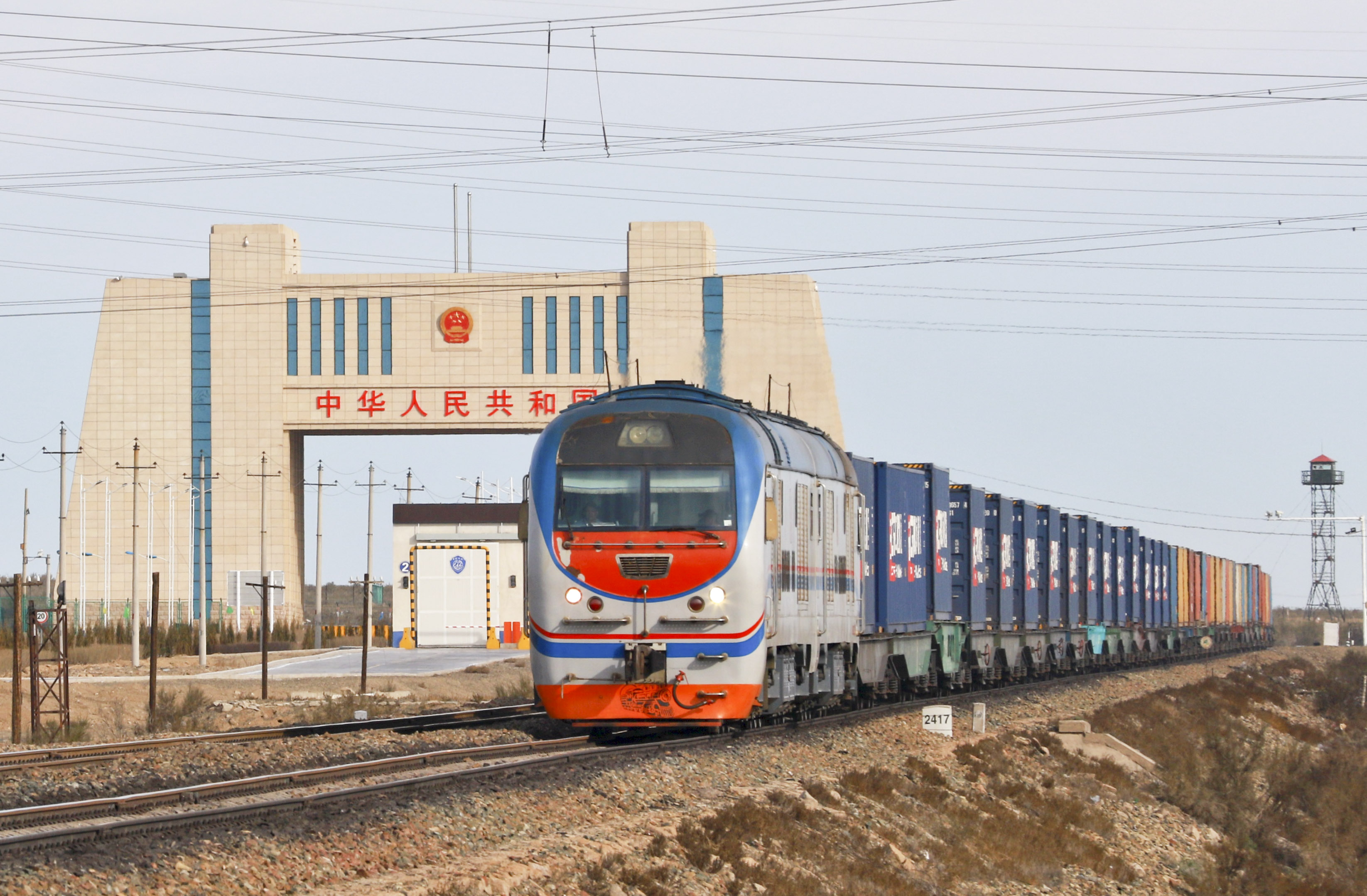

The number of China-Europe freight trains crossing the inland port of Alashankou in northwest China's Xinjiang Uygur Autonomous Region has reached 992, carrying 729,200 tons of goods as of March 12 this year, according to customs data, Xinhua News Agency reported.

A cargo train carrying British products enters China through the Alashankou Port in northwest China's Xinjiang Uygur Autonomous Region. (Xinhua file photo)
These trains transported a total of 92,900 twenty-foot equivalent units (TEUs) of goods as of the same date. Wang Wei, a person in charge of the customs declaration department with a local freight forwarder, said the company has served over 100 China-Europe freight trains, a year-on-year increase of 115 percent.
Ma Yun, an assistant engineer with the management department of Alashankou port, said that the port has seen an increasing amount of commodities transferred to it by air and sea this year. To keep up with the expanding volume, the port has optimized procedures such as the reloading of goods.
The Alashankou port has set up special service windows for the freight trains to make sure that clearance can be carried out 24/7. Meanwhile, it has adopted a digital bill platform and a transportation management system to improve customs clearance efficiency.
 Fire brigade in Shanghai holds group wedding
Fire brigade in Shanghai holds group wedding Tourists enjoy ice sculptures in Datan Town, north China
Tourists enjoy ice sculptures in Datan Town, north China Sunset scenery of Dayan Pagoda in Xi'an
Sunset scenery of Dayan Pagoda in Xi'an Tourists have fun at scenic spot in Nanlong Town, NW China
Tourists have fun at scenic spot in Nanlong Town, NW China Harbin attracts tourists by making best use of ice in winter
Harbin attracts tourists by making best use of ice in winter In pics: FIS Alpine Ski Women's World Cup Slalom
In pics: FIS Alpine Ski Women's World Cup Slalom Black-necked cranes rest at reservoir in Lhunzhub County, Lhasa
Black-necked cranes rest at reservoir in Lhunzhub County, Lhasa China's FAST telescope will be available to foreign scientists in April
China's FAST telescope will be available to foreign scientists in April "She power" plays indispensable role in poverty alleviation
"She power" plays indispensable role in poverty alleviation Top 10 world news events of People's Daily in 2020
Top 10 world news events of People's Daily in 2020 Top 10 China news events of People's Daily in 2020
Top 10 China news events of People's Daily in 2020 Top 10 media buzzwords of 2020
Top 10 media buzzwords of 2020 Year-ender:10 major tourism stories of 2020
Year-ender:10 major tourism stories of 2020 No interference in Venezuelan issues
No interference in Venezuelan issues
 Biz prepares for trade spat
Biz prepares for trade spat
 Broadcasting Continent
Broadcasting Continent Australia wins Chinese CEOs as US loses
Australia wins Chinese CEOs as US loses